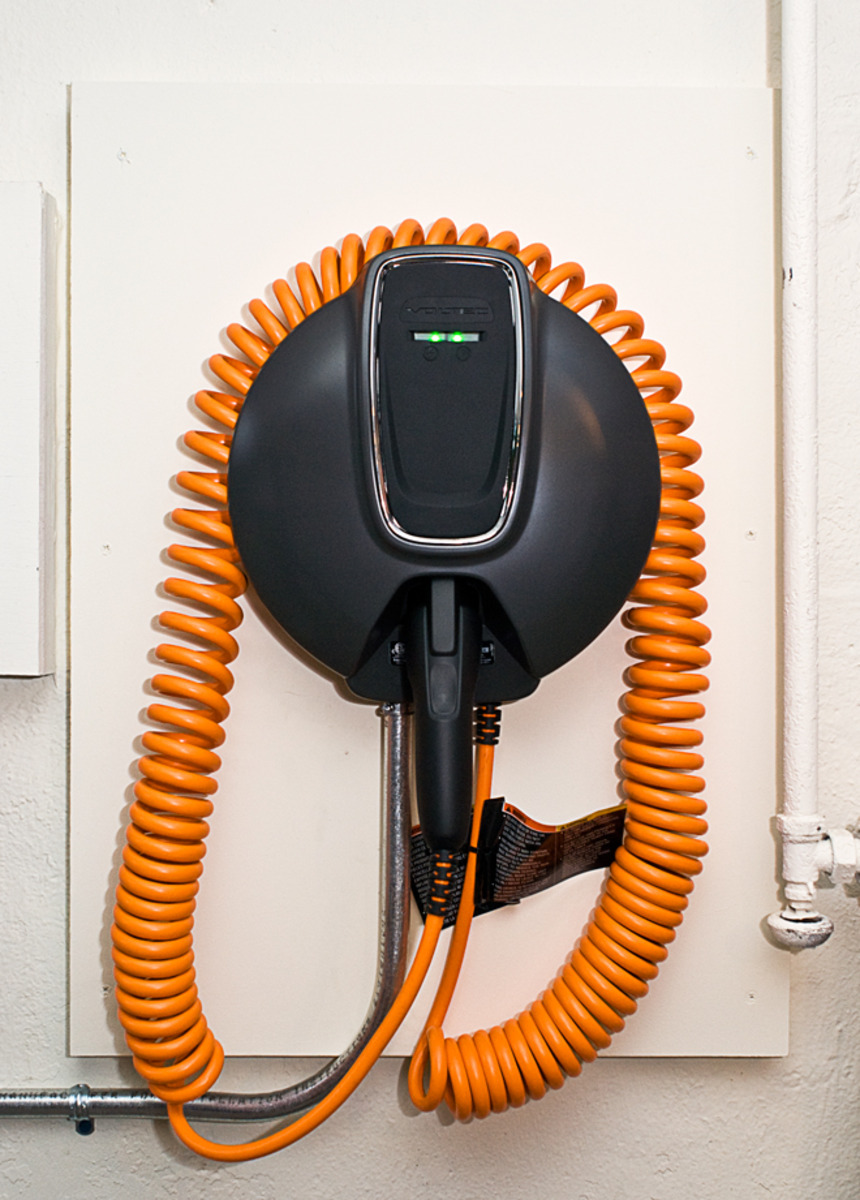If you’re in the market for an Electric car you’ll know that besides the obvious financial burden of paying for the car itself you probably want to budget a few thousand dollars extra to account for the installation of a dedicated electric car charging station in your home.
At the moment, most early adopters are willing to shell out the extra money, but if electric cars are truly going to become mainstream vehicles, the cost of providing charging infrastructure needs to drastically drop.
Enter the U.S. Department of Energy, which has just earmarked $12 million to help firms develop charging stations over the next 3 years which could cost consumers as little as $500 to buy.
The funding opportunity announcement comes on the back of a study produced by the DoE’s Grid Integration Tech Team (GITT) which identified two key areas which new charging stations needed to address in order to aid electric vehicle adoption.

2011 Chevrolet Volt 240V charging station
Cost
With current charging stations costing as much as a laptop computer, one of the aims of the fund is to dramatically reduce the cost to develop and produce charging stations, lowering the end cost of consumer and commercial charging stations alike.
Expect the funds to help enable charging infrastructure firms to refine existing designs, allowing for more functionality while lowering cost.
Funds could also theoretically be used to leverage economies of scale, allowing firms to order more components at lower unit cost once a suitable design has been found.
Smart grid connectivity

Portland CHAdeMO quick-charging station (publicly accessible)
With increasing numbers of electric cars on the road, the GITT has stipulated that future charging stations should be capable of communicating with power utility companies to ensure that the electrical grid is not overloaded at any one time.
Stipulating that successful fund recipients also include smart-grid connectivity in their designs also provides utility companies with a future way to identify and bill electric cars owners individually for charging point use. An example application of this would be to enable electric car owners to have any charging point use away from the home to be automatically charged to their home utility bill, for example.
Maybe more?
Although cost and smart grid connectivity are the two main remits of the fund, charging stations could also be developed capable of providing up to 40 amps of power at level 2, providing future compatibility for electric cars like the 2012 Ford Focus Electric, which is capable of charging at up to 32 Amps at 220 Volts from a suitable charging station.
[DOE via EVperspective.com]













